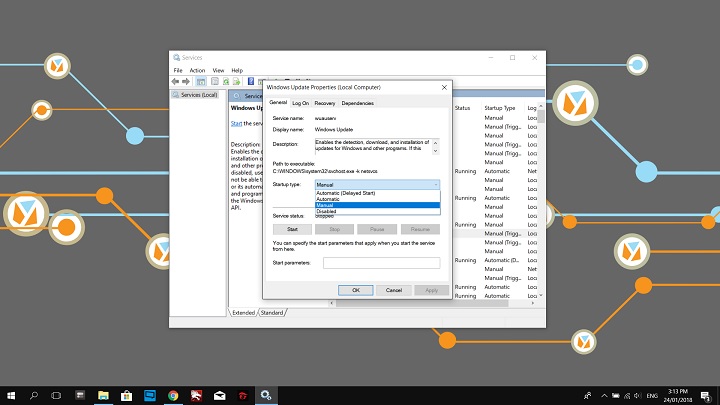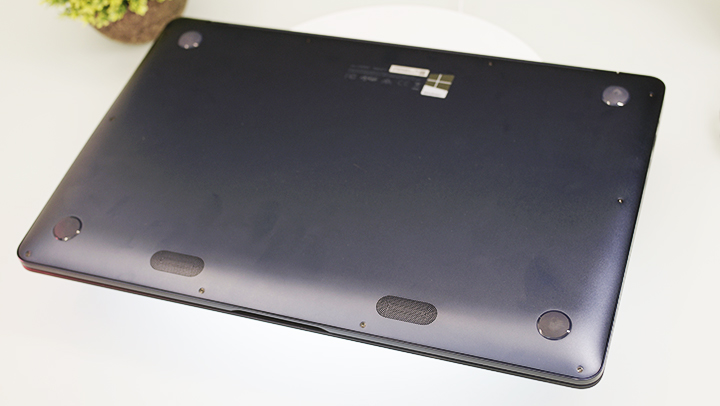Laptops have become a staple in the tech world, especially for those looking to have a portable solution for work or even for gaming. Although, just like with every other gadget, laptops age and slow down with time. While it’s easier to just go out and buy a replacement, not all of us have the resources to do so or there might even be times when we have some sort of attachment to the device. Don’t worry though, there are methods to make your old but gold device kick for a few more years. So, without further ado here are 8 ways to speed up your aging laptop.

We’ll divide this guide into two sections — Hardware and Software. First up, let’s start with the things you can do on the software side.
Defragging
One way to speed up your laptop’s storage access and efficiency is to do periodic defragmentation or defragging. As we all know, hard drives are mechanically-based devices with moving parts. One such part is a spinning disc where data is stored and accessed. Now, whenever your laptop stores or writes data to the hard drive, it gets stored in different places around that spinning disc in sequential order.

image by XZise
Of course, as time passes you continuously write and store more files onto your hard drive, which results in fragmentation. File fragments, or the blocks that were arranged before, will get jumbled up inside the hard drive. This will make it harder for the drive to read a file since its fragments are now farther apart from each other. That’s when defragmentation will come in handy. Defragging rearranges the jumbled blocks of a file and puts them back in sequential order, so that your hard drive can access it faster.

Most modern OS’ have there own built-in defragmentation tool, which you can access by a simple program search, and automatically defrags your system on schedule. Although, its still advisable to check-in every once in a while or even manually defrag if you have large files. If you are running on older operating systems chances are you have to do it manually.
Do take note that this process only helps mechanical hard drives and not SSDs or Solid State Drives, as they read files in a different manner.
Malware and Virus Scanning

Most of the time a laptop, or any PC for that matter, will have its main reason for slowing down to be an infestation of malware and/or viruses. This is why a simple scan for malware and/or viruses can help a lot in speeding up your computer. While there are a lot of third-party virus scanning software out there, it’s still recommended that you run initial scan with your computer’s built-in scanner. We made a more in-depth guide on how to scan your computer for these kinds of attacks here.
Periodically Delete Files and/or Programs
If a full reformat isn’t to your taste, or you have no other way of storing your important files for now, then it might be best to at least free up some space by deleting files or programs you no longer need. Of course, this is a very long and arduous process, but it does help in keeping your computer clean and fast. Not to mention, virus and malware scans would also end up being faster since your program would have less files to sift through. This also holds true for both start-up and defragmentation.

Another thing to take note of is that your computer often saves temporary files, which could be previous saves of word files or what not. While these are harder to access manually since they are often hidden in your folders. There are programs that you can use to automatically delete these files. Windows PCs, in particular, have a program called Disk Cleanup, which automatically detects and analyzes files that are no longer in use and then deletes them. Of course, it will still ask for your final decision before doing so.
Update your OS and drivers
Sometimes the reason your computer slows down is that it still has some bugs that need fixing, or it still needs some software optimization. This is why constantly updating your drivers and software are very important. While this will only provide speed to a certain extent, especially if your device is near the end of its life cycle, it will ensure that programs are running at an optimal level.

Yes, we know. Windows updates are not always that helpful, and sometimes even bring more bugs than fixes, but it is still crucial that you update your OS. The security fixes that come with updates are still very important. Although we do recommend that you set your update service to “Manual”, for those using Windows. This is to give you the option of checking out if the next update is optimal, as well as removing the cumbersome auto-restarts you keep on experiencing.
To do this just follow the steps below.




Reformat
Your last resort, whether to remove a virus or just if you want a fresh start, is to reformat the computer. This would, without a doubt, speed up your device to a certain extent. Although this is not always a guarantee, especially if you intend to play games that are way over your components’ capabilities. Then again, it is your best option on the software side, as this removes all of the files and programs you’ve installed and stored, unless you choose otherwise, and return your computer to its factory state. To do this on Windows follow the steps below.




Drives tend to perform faster when there is more free space, as there is less stuff for it to go through when it wants to perform a read or write.
Let’s move on to the physical side, hardware.
Upgrade your parts
As mentioned earlier, laptops have less customizability than their desktop counterparts, but they do still offer a few hardware upgrade options. Remember though, that not all laptops have an upgradeability factor, so make sure to double check your unit before purchasing any new hardware. Two of the most upgradeable parts of a laptop are hard drives and RAM. Any kind of boost to these components will definitely play a big part in increasing your device’s performance.

An increase in RAM would speed up programs and make multi-tasking easier while an upgrade of your storage drive will speed up load times and even assist in a few programs. Increasing your RAM is a bit more straightforward. Just look for a compatible module and stick it in your free slot. It is highly recommended though, that you replace your RAM entirely, putting in a pair of brand new modules that were packaged together. This will prevent any compatibility issues.
Upgrades to your storage options, on the other hand, can be a bit tricky. Here are some choices:

The speed of a hard drive is calculated by how fast its components can rotate, which is measured in rotations per minute (RPM). Basically, the higher the RPM, the faster the drive. SSDs, on the other hand, work differently, since they are flash-based. They have faster read and write speeds and can generally sift through files better than mechanical hard drives, but they do come at a higher cost-per-gigabyte and have a shorter lifespan. This is why SSDs are mainly used as an OS and/or program drive for essential tools like video editing software, and maybe one or two of your favorite games.
Have your laptop routinely cleaned
This your one of your best weapons on the hardware side. Part of why laptops tend to slow down is because of heat. Whenever your device gets too hot, its components start to throttle or even worse, automatically shut down. Throttling happens when your device reaches certain thresholds put in place by manufacturers, to prevent a notebook from approaching any kind of danger. This essentially lowers the speeds of your CPU (Central Processing Unit) and GPU (Graphical Processing Unit) to lower heat output, which in turn slows down overall performance.

While a big part of your laptop’s heat management comes in the included cooling system, dust and dirt build-up can also be a big factor. Even if your device has an over-the-top cooling system, if dirt and dust clog the exhaust and fans, it would hamper the cooling. In order to relieve your system of this build-up, have it routinely cleaned. A good schedule for this is every 6 months.
Have your CPU and GPU repasted

This is another big weapon in combating your laptop’s heat management issues, although it comes at a price and has some risks. Apart from fans, your laptop also has heat sinks and pipes to redirect heat flow away from your CPU and GPU. Directly installing a heat sink over the components creates gaps and spaces, so to maximize heat transfer and close the gaps, manufacturers use thermal paste. Over the course of time, the thermal paste can either get burned out or dried out completely, which impacts heat transfer. Having your GPU and CPU repasted would, of course, fix this problem, as it gives you a fresh start in terms of thermals.

As for the risks, using thermal paste that is not up to standard could prove to be fatal for your system. Not to mention, application of the material should be kept at minimal to prevent leaks that could lead to component damage. Installation fees and some thermal pastes are also quite expensive. The beauty here though is that most repair shops offer both cleaning and repasting in one package.
That’s about it! A gentle reminder though, we do not recommend that you try and open your laptop by yourself if you have no idea what you are doing. Do give us a heads-up in the comments section below if we missed any pointers.

YugaTech.com is the largest and longest-running technology site in the Philippines. Originally established in October 2002, the site was transformed into a full-fledged technology platform in 2005.
How to transfer, withdraw money from PayPal to GCash
Prices of Starlink satellite in the Philippines
Install Google GBox to Huawei smartphones
Pag-IBIG MP2 online application
How to check PhilHealth contributions online
How to find your SIM card serial number
Globe, PLDT, Converge, Sky: Unli fiber internet plans compared
10 biggest games in the Google Play Store
LTO periodic medical exam for 10-year licenses
Netflix codes to unlock hidden TV shows, movies
Apple, Asus, Cherry Mobile, Huawei, LG, Nokia, Oppo, Samsung, Sony, Vivo, Xiaomi, Lenovo, Infinix Mobile, Pocophone, Honor, iPhone, OnePlus, Tecno, Realme, HTC, Gionee, Kata, IQ00, Redmi, Razer, CloudFone, Motorola, Panasonic, TCL, Wiko
Best Android smartphones between PHP 20,000 - 25,000
Smartphones under PHP 10,000 in the Philippines
Smartphones under PHP 12K Philippines
Best smartphones for kids under PHP 7,000
Smartphones under PHP 15,000 in the Philippines
Best Android smartphones between PHP 15,000 - 20,000
Smartphones under PHP 20,000 in the Philippines
Most affordable 5G phones in the Philippines under PHP 20K
5G smartphones in the Philippines under PHP 16K
Smartphone pricelist Philippines 2024
Smartphone pricelist Philippines 2023
Smartphone pricelist Philippines 2022
Smartphone pricelist Philippines 2021
Smartphone pricelist Philippines 2020
Andre says:
Hands down the best upgrade for an old laptop is to get an SSD. Or you can get a hybrid SSHD (hard disk with SSD cache) for much cheaper, but it will only speed up access upon repeated usage and only for parts of the disk that are frequently accessed (like the Windows OS).
K L says:
switch to ssd and never come back to hdd